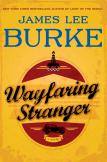A Fiction That Does Justice
As the United States evolves into a multicultural society, few Americans are now old enough to recall the Great Depression and postwar economic boom that shaped our nation’s WASP elite. But James Lee Burke’s 24th novel, Wayfaring Stranger, revives the world of “traditional America” with a passionate aim to comfort all who were marginalized by this period of unparalleled prosperity arising from Hollywood and the oil fields of Texas.
The Louisiana-bred Burke, a rare winner of two Edgar Awards who is best known for his Dave Robicheaux crime novels, reaches deep into his own biography for this foray into historical fiction. A former oil pipeliner and Sinclair landman, this 78-year-old Catholic Southerner mixes personal experience with colorful characters based on family and public figures to paint a vivid portrait of postwar hope tainted by corruption. The result is a rollicking, passionate and surreal exercise in justice-oriented fiction that gives the lie to American exceptionalism.
Burke’s story revolves around a young man from South Texas who serves heroically in World War II, only to return home to a more sinister battle with home-grown fascism and greed. Yet the interactions between this novel’s vivid characters—including an indomitable Texas grandfather and a sensual Louisiana country girl-turned-Hollywood-starlet—overshadow the plot. Righteous anger, unexpected violence, romantic mythologizing and moments of deep compassion drive the poignant narrative to an unexpected conclusion.
Merging fact with fiction, romanticism permeates and often mythologizes the plot. Burke has stated that his protagonist, Weldon Avery Holland, is a modern-day version of Chaucer’s knight modeled on a real-life cousin who served in World War II. He accordingly laces the book with frequent references to sources like the “Song of Roland” and Sir Thomas Malory, blurring his narrative with bursts of surreal romanticism that remind us we are reading about a time period—the 1930s to 1940s—now fading into the same realm of mythology as the warriors of Roncesvalles.
The plot picks up after Lieutenant Holland helps liberate a Nazi concentration camp and returns home with a Jewish war bride. Starting an oil pipeline business with his former platoon sergeant Hershel Pine, he patents an airtight welding technique using technology from German Tiger tanks.
Unfortunately, their success at drilling offshore wells in Louisiana and Texas soon brings Weldon and Herschel into conflict with some of the wealthiest oil and film tycoons in America, who persecute Weldon’s wife as a Spanish-born Communist when the partners refuse to sell their company. As bodies pile up and Weldon suffers deepening injustices, the reader wonders how far he’ll go to protect his wife, and whether he’ll suffer the same fate as Roland or King Arthur.
Longtime Burke fans will detect a familiarity of style in these classical overtones. In a telephone interview on July 24 for America’s website, Burke emphasized the classical sources of his writing, noting that all the crimes in his stories go back to three sources: the Bible, Greek tragedy and Elizabethan theater. Rooted in these populist inspirations, he said his fiction seeks to comfort the afflicted and afflict the comfortable, doing justice to the ordinary heroes in our midst who have been overshadowed by the robber barons of official texts.
“My feeling is that the real saints, the gladiators of our time, are standing right next to us in the grocery line,” Burke said in the interview.
Nevertheless, vivid realism grounds Burke’s hagiographical flourishes in Wayfaring Stranger, as instances of racism and anti-Semitism punctuate the novel’s events with uncomfortable detail. Burke generates a particularly strong cognitive dissonance in passages where anti-Communist fear, anti-black racism and anti-Semitic bigotry coexist with unimaginable wealth in idyllic Norman Rockwell settings that are scrupulously accurate in their details of everyday life.
America’s so-called Golden Age was a blessing for some, but not for everyone.
A recovered alcoholic and 12-step veteran, Burke’s compassion for suffering humanity is ever present to readers.
Burke stated that his faith in God, while not explicitly visible on the printed page, drives his effort to comfort readers in their own struggles with the powers of this world. “What I try to do as a Catholic is give voice to those who have been denied voice, to give recognition to those souls who have been forgotten,” Burke said.
The ultimate irony of Wayfaring Stranger, likewise, might be the story’s underlying insinuation that American history tends to turn reality into myth and vice versa. When we believe in the goodness of America’s self-made millionaires, recalling self-interested men like the Rockefellers as heroes, Burke suggests we are choosing to accept myth over reality.
By contrast, Burke’s work challenges readers to accept the goodness of deeply flawed ordinary people, thereby choosing the one myth about humanity that is also real. A throwaway line in Wayfaring Stranger gives some hint of this agenda. As Weldon considers whether to trust a hospital receptionist with information that might help him rescue his wife from a fate worse than death, Burke describes the woman as follows:
She was one of those people who remind us that decency and courage and charity are found most often among the humblest members of the human family, and most of them get credit for nothing.
Opening a book by James Lee Burke, the last of the great Catholic Southern novelists, is like rediscovering that the spirits of Flannery O’Connor and Walker Percy still walk the earth. Sometimes the prose is a bit messy and the narrative overly complicated, but it’s hard to find much of comparable human feeling on our fiction shelves nowadays. The mists of Avalon might be closing over the waters, but here is one author still rowing in the other direction.
This article also appeared in print, under the headline “A Fiction That Does Justice,” in the April 13, 2015, issue.







